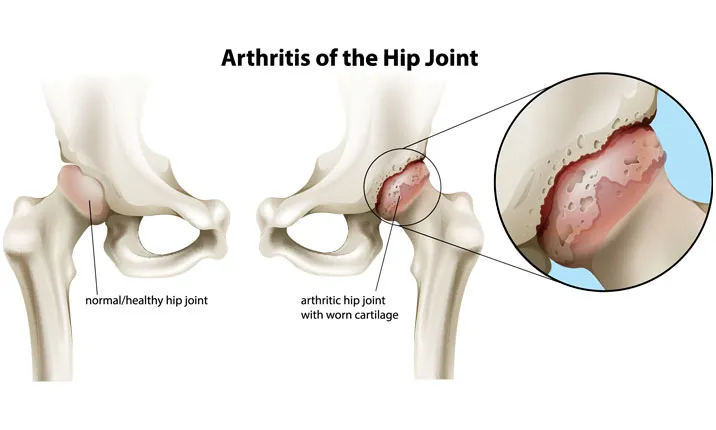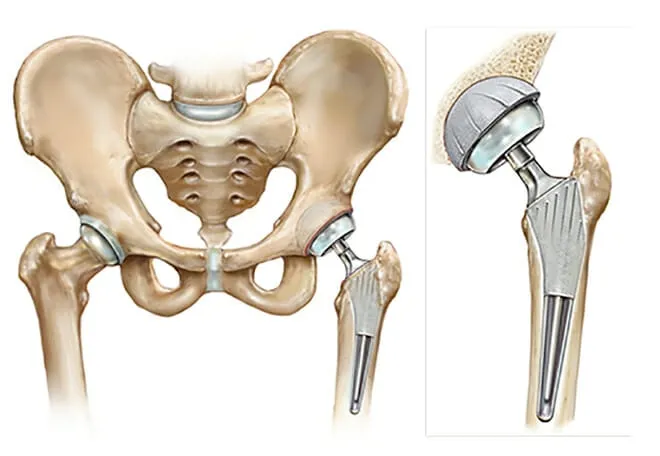Doing this routine task of putting one leg over the other while putting on your socks and shoes requires an adequate range of motion in your hips which may have decreased due to hip arthritis.
Doing this routine task of putting one leg over the other while putting on your socks and shoes requires an adequate range of motion in your hips which may have decreased due to hip arthritis.
Your hip joints might not hurt, but you could find it difficult to do every day work. Hip arthritis advances swiftly and causes disruptions to your normal activities.
Most people do not notice any signs of hip arthritis in the beginning. Still, they may have to undergo hip replacement within a short period due to rapid deterioration of the hip joint.
Dr. Sandeep Singh, a top orthopedic doctor in Bhubaneswar, says he regularly sees patients who are unaware they have arthritis despite having it for an extended period.
He stresses the importance of detecting your hip arthritis at an early stage to minimize how it may affect your daily activities and prevent severe damage to the joint.
You can consult Dr. Sandeep Singh, one of the best orthopedist in Bhubaneswar, at Care Super Specialty Hospital or National Orthopedic Centre for comprehensive treatment options to manage your hip arthritis.

Check out the tell-tale signs of hip arthritis.
- Pain in the thigh or groin that extends to your buttocks, outer thigh, or knee
- Worsening of pain after vigorous activity
- Pain that worsens after sitting for a long period or in the morning
- Limited range of motion and stiffness
- Finding it hard to get in and out of the car
- Walking with a limp
- Experiencing pain while walking or leaning over
- Locking or sticking of the hip joint
- Movement causes a grinding noise
- Difficulty climbing up and down the stairs
A person with hip arthritis can expect the above symptoms to worsen with time. At first, they may be sporadic and associated with certain activities, but the hip joint continues to degenerate with time.
Therefore, it is advisable to visit an orthopedic surgeon for a check-up. Early diagnoses can preserve the quality of your life.
Now that you know the symptoms let us learn about the different types of hip arthritis.
Dr. Sandeep Singh, one of the best orthopedic doctor in Bhubaneswar for hip replacement, explains that there are 100 plus types of arthritis, of which three affect your hip the most. The type of arthritis you have will determine your course of treatment.

Osteoarthritis
Rheumatoid arthritis
Avascular necrosis
How is hip arthritis treated?
Currently, there is no cure for hip arthritis, but there are treatment alternatives that can help you live a more active and fulfilling life. Enhancing hip function and controlling pain are the objectives of these treatments.
Non-surgical treatment
Non-surgical treatment helps control pain while postponing surgery. In order to lessen hip arthritis-related disability, the doctor might combine treatments. The treatments include:

Medication: To manage the pain, your doctor may prescribe painkillers or anti-inflammatory medications.
Lifestyle changes: If necessary, you may be advised to lose weight and cut back or discontinue painful activities. Losing weight eases pressure on your hip joint.
Corticosteroids injection: These injections help relieve pain, inflammation, and swelling.
Physical therapy: They help relieve pain and increase your range of motion.
Canes: The doctor may advise you to use a cane while walking to reduce the weight on the affected hip.
Stem cell therapy: Injections of stem cells help improve healing and reduce inflammation.
Surgical treatment
Your doctor might suggest surgery if other alternative treatments have failed or your arthritis is too severe.
Hip arthroplasty, or hip replacement surgery, is a procedure that replaces your hip joint with artificial implants.
Although hip replacement surgery is a major operation, it offers good results and helps you return to your daily activities.
If you have symptoms of hip arthritis, you should visit an orthopedic surgeon for diagnosis and learn about your treatment choices. The sooner you begin treatment, the better your outlook and the less likely you will need surgery.
Dr. Sandeep Singh is one of the best orthopedic doctor in Bhubaneswar, excelling in a range of hip replacement surgeries, including total hip replacement, partial hip replacement, and hip resurfacing.


